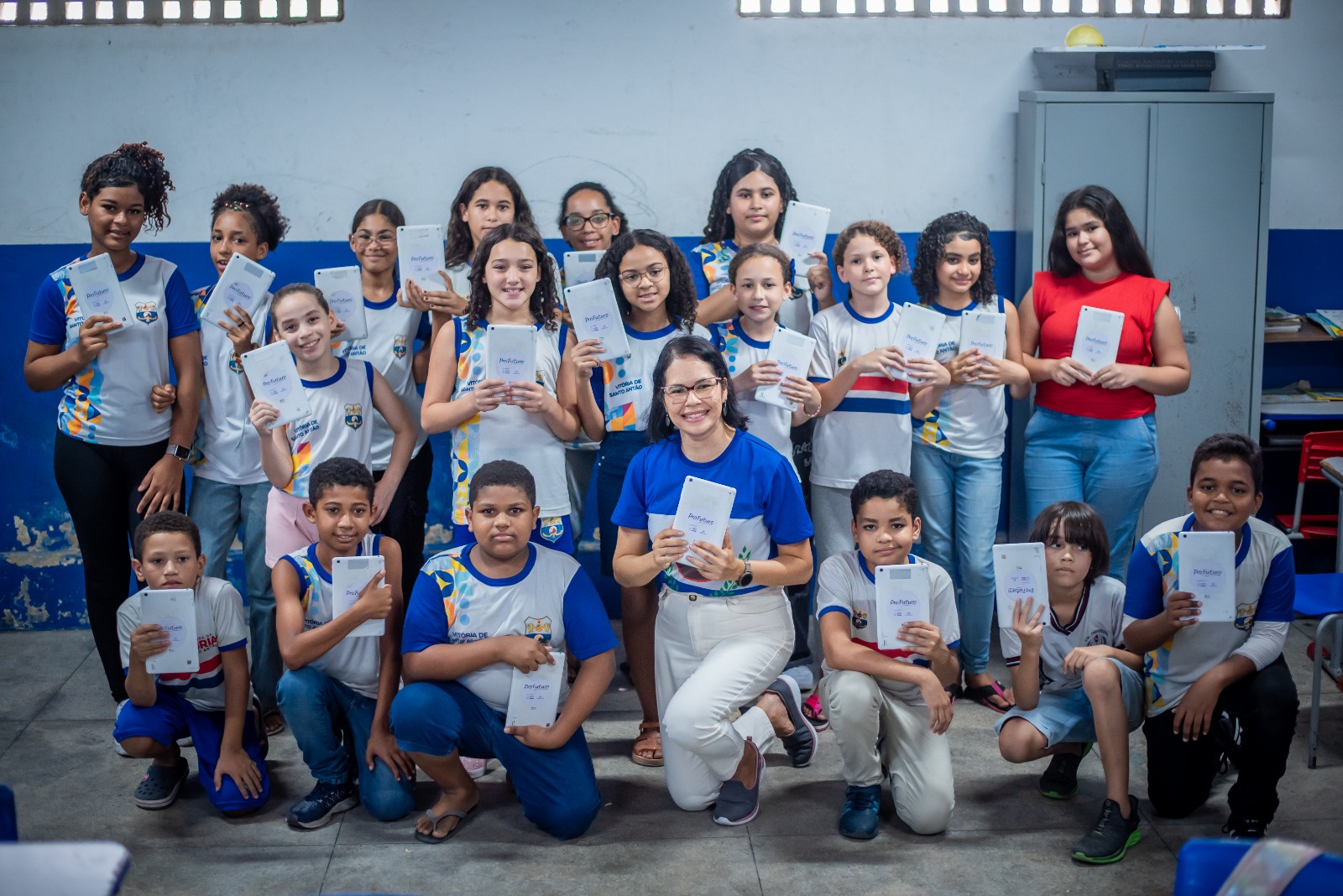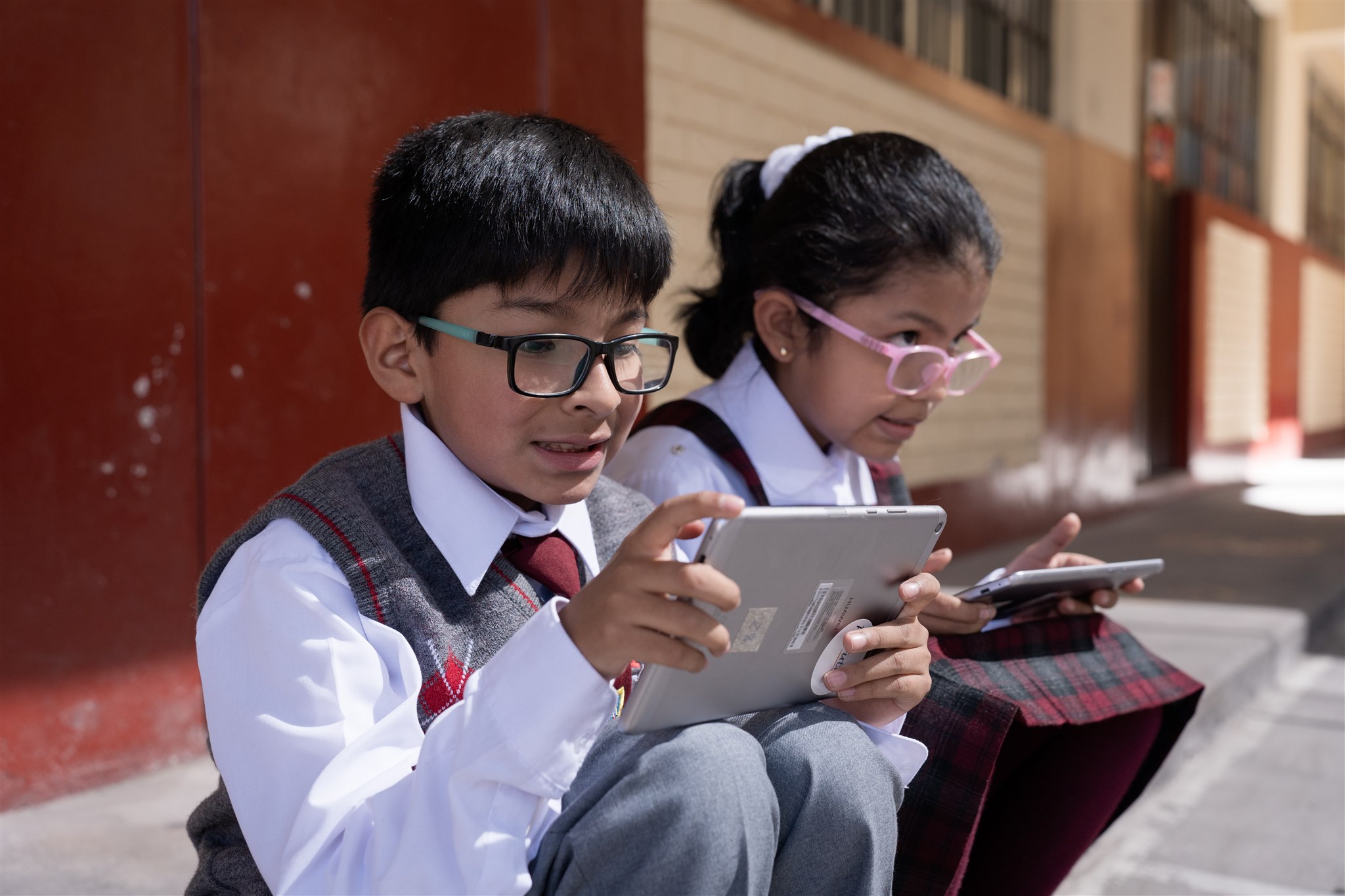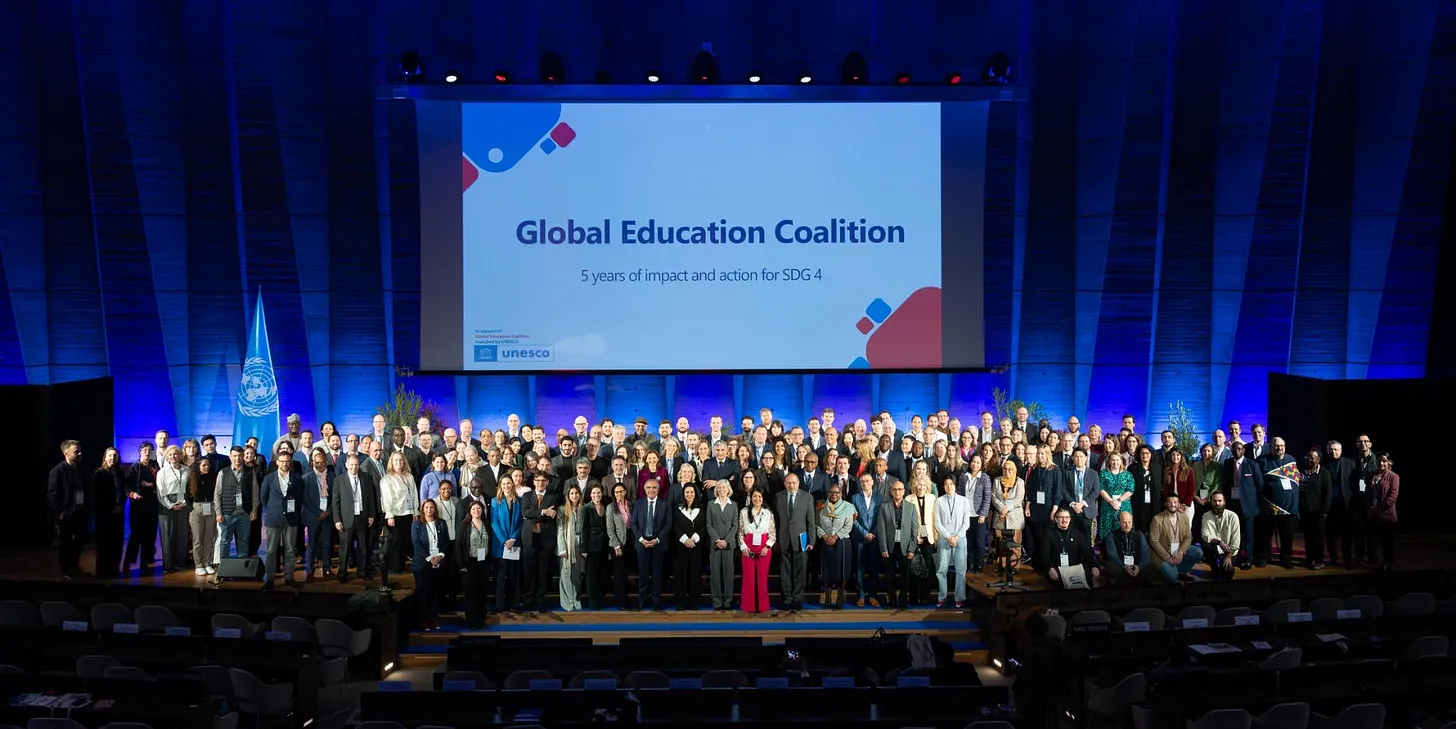In 2019, ProFuturo came to Senegal with World Vision to work on bringing digital education to hundreds of children in vulnerable environments. Given the gap in school enrolment rates between rural and urban areas, our programme was launched in the country in these rural areas, namely in the Fatick region. Three years later, ProFuturo and World Vision are starting a new phase of project implementation.
The event took place on 10 November 2021 at the Ngor Ndame Ndiaye School, Fatick, Senegal. The event was attended by various representatives of the country’s education sector, including the National Director of World Vision Senegal, Antoinette Habinshuti, the Minister of Finance and the Governor of Fatick. The meeting served to strengthen the partnership in Senegal, where ProFuturo’s work is the most extensive on the continent.
The collaboration of ProFuturo and World Vision Senegal began in 2019 by bringing digital education to 30 schools. Two years later, 212 new schools were added to the project, located in rural areas of four different districts in the Fatick region.
Antoinette Habinshuti said at the launch event that the partnership with ProFuturo has allowed “vulnerable children to live the dream of using digital tools as a learning support in their academic journey and thus have the same opportunities to succeed.”

Educational context in Senegal
In Senegal, there is still a very wide gap between rural and urban school enrolment rates. The gross primary school enrolment rate is almost 100% in Dakar and 84.9% in Fatick, the region where the ProFuturo project has been implemented since its inception. On the other hand, at higher education levels, the level of school enrolment drops. The overall average gross enrolment rate at this level is 66.1% in Dakar and 59.3% in Fatick.
On the other hand, a significant gender gap persists in Senegal, ranking 99th out of 153 countries in the 2020 Global Gender Gap index. This reality has negative consequences for the well-being, health and education of girls and women. In addition, there are regional disparities. Girls and women in rural areas are much more affected by gender-based violence than those in urban areas. While in the capital, Dakar, 12.6% of children are married by the age of 18, in Fatick this percentage rises to 24.8%. In Dakar, 9% of adolescent girls aged 15-19 are pregnant or have given birth to a child, while in Fatick this figure is 16%.





